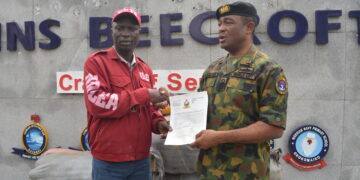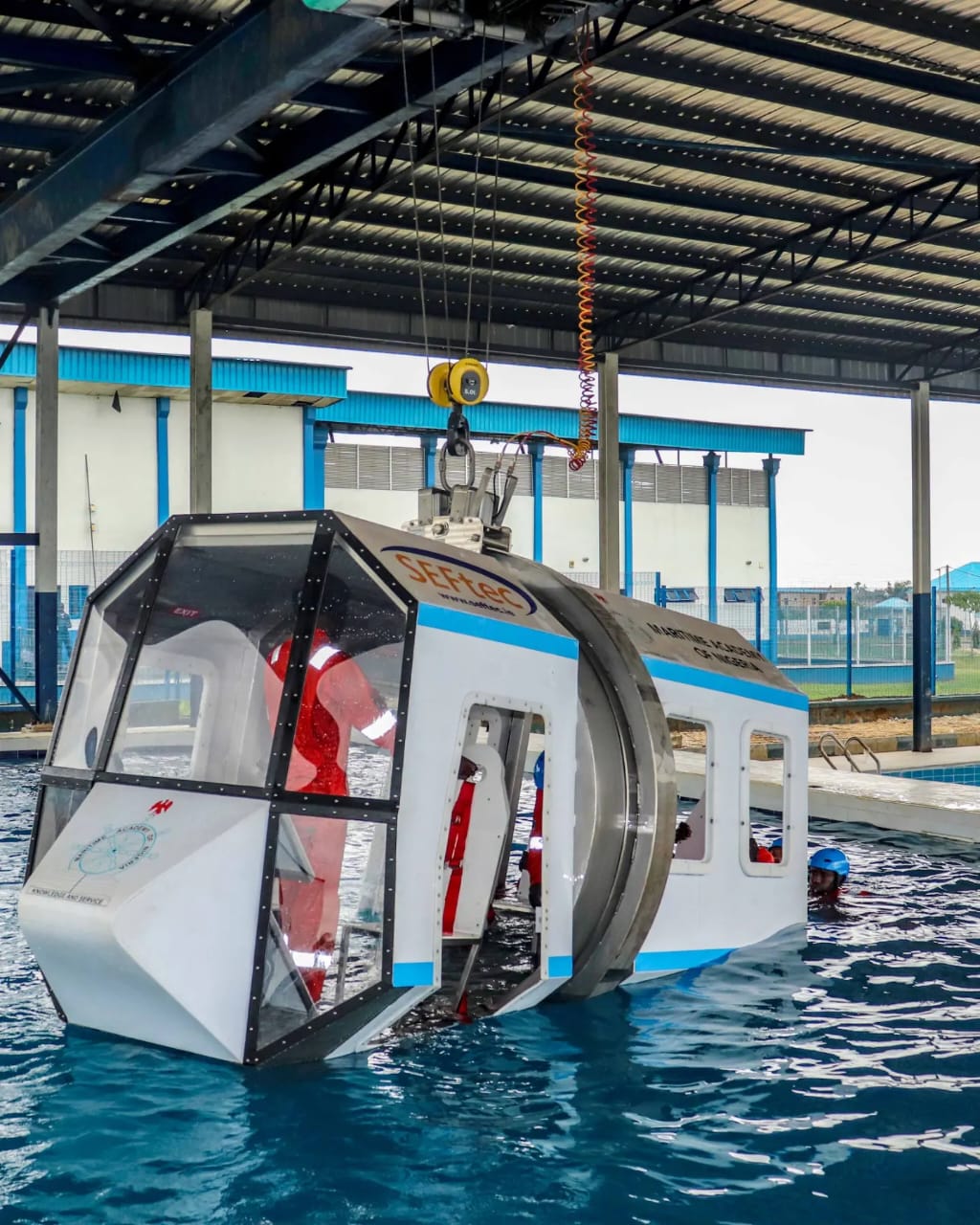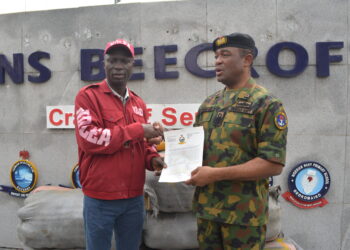The Maritime Academy of Nigeria, Oron in Akwa Ibom state, has further strengthened its Faculty with chief engineers from the University of Strathclyde, Glasgow, one from India and another, a Nigerian, just as it is enjoying great support from Captain Tajudeen Alao, president of the Nigerian Association of Master Mariners (NAMM).
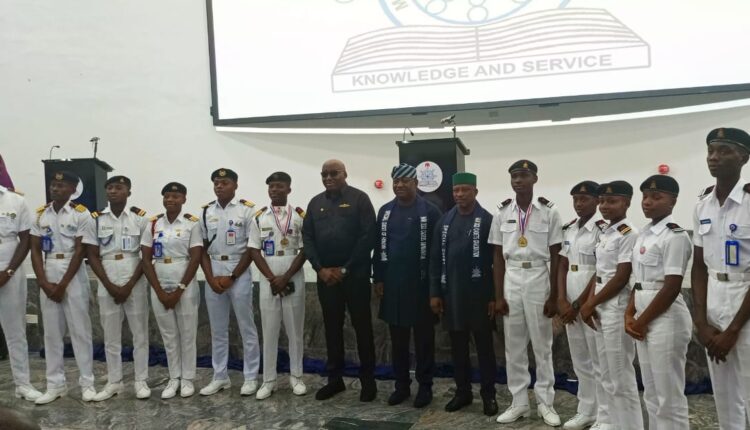
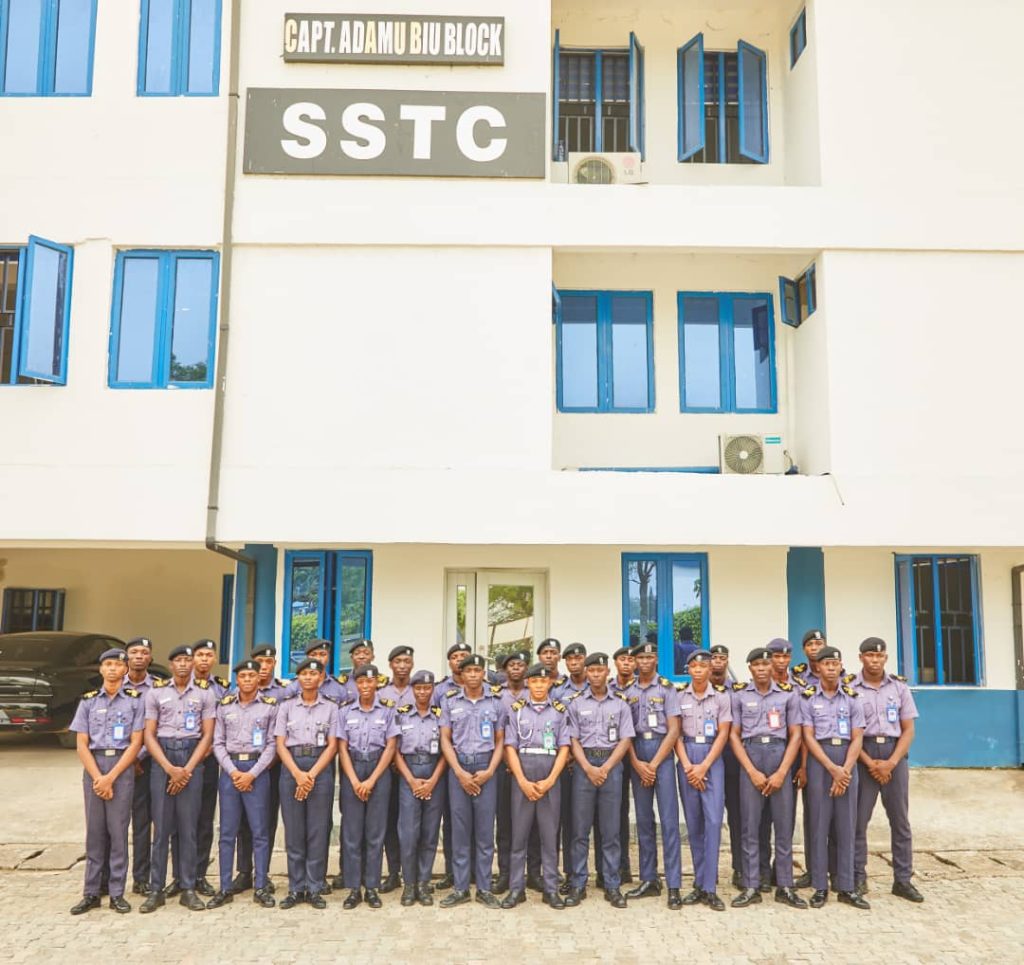
Upgrading the Academy with modern training facilities for maritime education including different types of simulators and importantly, a world-class survival pool, has attracted international students to come for training there. “We have trained at least 12 students from allied nations, because the facilities are here, the Faculty to handle all the specialised trainings are here too,” said Commodore Duja Effedua (Rtd.), Rector of the Academy.
Now that the Academy has been successfully salvaged from a degenerated state it suffered prior to 2017, it would be safe to ensure that nothing returns it to such condition again. Therefore, members of the House of Representatives Committee on Maritime Safety, Education and Administration, led by its chairman, Hon. Khadijah Ibrahim, in a one-day oversight function, are interested in ensuring that funding the running of the Academy does not suffer glitches.
Represented by the Committee’s Vice Chairman, Hon. Uduak Ududoh (PDP-Akwa Ibom), Ibrahim said that the committee would soon officially communicate its intention to the institution concerning some building contract projects that were abandoned after monies have been paid in the award of the contracts.
Areas of interest highlighted
During their oversight visit, the House Committee members were interested in interrogating what the Academy had done within the budget year of 2023. “They would check to be sure we did the projects that we said we would do,” Effedua said. However, the Committee was surprised to see that the Nigerian maritime Administration and Safety Agency (NIMASA) only allocated 33% of the funds as against its claim before the National Assembly of giving 88% of the funding due to the Academy. Now, the Committee has insisted that the Academy must get every kobo due to it, because training is expensive; the running costs and other expenses such as buying diesel are very expensive. “If money is not provided for the operations, it would affect output and the Academy has come a long way out of the doldrums. Now we are among the best in Africa and we can’t allow the issue of funding to affect us. Though the matter has been reported to the Minister of Marine and Blue Economy and the Permanent Secretary is up on the situation. So, the National Assembly reps coming is just like the icing on the cake. It wasn’t that the Ministry wasn’t doing anything,” the Rector added.
Spectacular achievements of the Academy in the last academic year
The simulators that the Academy acquired four years ago are still running and are being maintained by staff who were trained in India when the simulators where being produced. The staffs were the ones who coupled the simulators in India before they were brought home. That is what the Indians do; they ensure that the client get their staff trained and are able to couple the simulators, while they simply supervise you. The trained staffs also do the upgrading whenever a new programme comes up. They simply go online and update the simulator, without having to travel anywhere. For that, the Academy are current on developments.
A 10-minute opportunity granted the Academy to make a presentation at a programme by the International Seabed Authority in 2023, opened the Academy to African countries present on that occasion. And the Secretary General used the opportunity to encourage patronage of the Academy. “That statement by the Secretary General caused things to happen. Our record shows that we have trained at least 12 students from allied nations and that is a plus, a thing that had never happened in the 46 years of the Academy,” the Rector said.
In the last academic year, many students came from the Maritime University, Okerenkoko, to do their Standards for Training and Certification and Watchkeeping (STCW) courses at the Academy. “We gave them free hostels and ensured they enjoyed their stay. They were reluctant to leave, because they enjoyed the training. Likewise, staff members of three different maritime training institutions have come to the Academy for refresher courses to enable them qualify to teach in their institutions. For me, it is great, because the Academy is building capacity for the nation,” the Rector added.
The visiting Committee members had the opportunity of using some of the training facility. They visited the Survival Pool. Until now, there was never a pool as that in the Academy. The one that was there was just a regular swimming pool, which was never for training and it never worked for once, because it couldn’t retain water. The Committee also saw the Helicopter Underwater Training equipment, the Marine Exhibition Hall, which has been populated with scrap engines from shipyards. The engineering staff supported the cadets to repair and reactivate the engines and bring them to functioning generators and they are now using the engines for training.
A remarkable achievement by the Academy in the last one year is the focus to power the community using solar energy, thus saving it huge sums of money that would have been directed to electricity supply. The Rector explains that: “The cost of diesel is over N30 million per truck, so how do we afford it? But, we had a foresight in late 2022 and we invested in solar power and it enabled us to power 100 per cent of our offices and classrooms. This made us depend less on generators in doing our work. We don’t have problems. There is actually no power outage at the Academy right now. But when we need to power heavy duty equipment, we put on the generator for the period. This has helped us a lot because the diesel we bought about four months now is still left due to the solar energy used in supplying electricity.”


